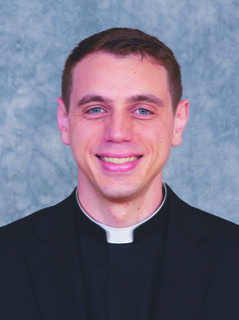
I have often heard that “God is bound to the Sacraments, but he is not bound by the Sacraments.” This means that whenever a Sacrament is celebrated worthily according to the rite of the Church, he gives sacramental grace every time. He has bound himself by the covenant with his people which was sealed by his blood. However, God is free to give grace outside the sacraments, even to those who are not Christians.
Is baptism necessary to go to heaven? Strictly speaking, the answer is “no.” There are billions of people in the world who have never been baptized, through no fault of their own, yet we can still have hope of their salvation. Christ died for all. However, the effect of baptism is necessary for salvation. Baptism forgives Original Sin (and all other sins for adults) and restores the life of God, sanctifying grace, in the soul. This effect can be received through a baptism of desire. This means that as long as a person is open to God’s grace, God will give this grace even without a person being physically baptized. One example of this is the Catechumens of the Church. Catechumens are seeking baptism and initiation into the Catholic Church. What happens if a Catechumen were to sadly pass away before his or her baptism? The Church has always believed that because of the Catechumen’s desire for baptism, God has already given this grace to their souls. Thus, they would be given a Catholic funeral with great hope that they are on their way to heaven.
God can give grace however he would like to. After all, grace is his free gift to begin with! A common tradition in our Church is to receive a spiritual Communion. One blessing about our recent pandemic is that this tradition of spiritual communion has been popularized once again because many people still are not able to receive Communion at Mass. A spiritual communion involves making one’s desire for Holy Communion known to God. We believe that when we make this prayer in good faith, God gives us the graces that would ordinarily be given to us through reception of the Eucharist. There are several formulas floating around for this prayer, but here is a simple example: “Lord Jesus, I cannot at this time receive you in the Eucharist. However, I desire for you to come into my heart right now because I love you and desire to be with you.” We can have faith that God will always answer this prayer because he loves us! We can make this act of spiritual communion at any time, not just while watching a livestreamed Mass!
One more “sacrament of desire” that it would be helpful to know about is the Sacrament of Penance. The only ordinary way in the Church to have our serious sins forgiven is through Confession. However, it is of the utmost importance that if we do happen to commit a serious sin, we turn to prayer immediately and express our love for God and sorrow for our sin. This is called an act of “perfect” contrition. This does not mean that we are perfect by any means, but it entails sorrow for our sins because of how they offend God and his love for us. When we do this, we can know that God has already forgiven our sin. However, we should still seek out Reconciliation at the first available opportunity, and we should not receive the Eucharist until we have done so. This practice of making an act of perfect contrition can give us a great sense of peace and avoid despair when we have fallen into sin.
God is so loving and as our Father in heaven, he gives us all that we need. When we desire his grace, he will answer this desire of our heart every time!